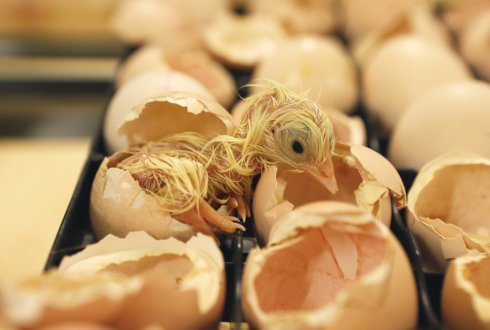



Better health in chicks that hatch directly in the house
Broilers that hatch in the house show less mortality and less footpad lesions.
“This hatching method also appears to have positive effects in the long term,” says Ingrid de Jong, project leader on behalf of Wageningen Livestock Research, who compared the traditional hatching system with that of hatching in the barn for this research.
Chick health thus appears to depend on the conditions to which the chick is exposed in its early life. For several years now, alternative hatching systems have been available on the market where chicks hatch in the house, so that they have direct feed and water available and no longer need to be transported.
The study looked at how hatching events influence the physiological and behavioral development of the chick, not only during that period, but also up to slaughter age. In addition, the effect on technical results such as growth and feed conversion was examined.
Better health
Results, measured in a trial carried out at the Poultry Farming experimental farm in Geel (B.), show that chicks that start up in the house have better health. “It seems plausible that the conditions in early life affect the health and behavior of chicks for a long time. However, little is known about the underlying mechanisms ", says De Jong. Some effects also disappear as the chicks age. For example, chicks that hatched in the house until day 21 were heavier than chicks that hatched in the hatchery, but not after that. This study under controlled conditions broadly confirms previous findings on practical farms.
Behaviour
"This is also the first study to look at the long-term effects on behavior," says De Jong. However, the different outcome systems did not show any difference in behavior in the pen, although there were differences in the response when the chicks were exposed to a cage. test situation, not only at a young age, but also at an older age. Follow-up research will also look at this. This follow-up research is being done together with the Adaptation Physiology department in the EU project Healthy Livestock.
The above results are described in these scientific publications:








